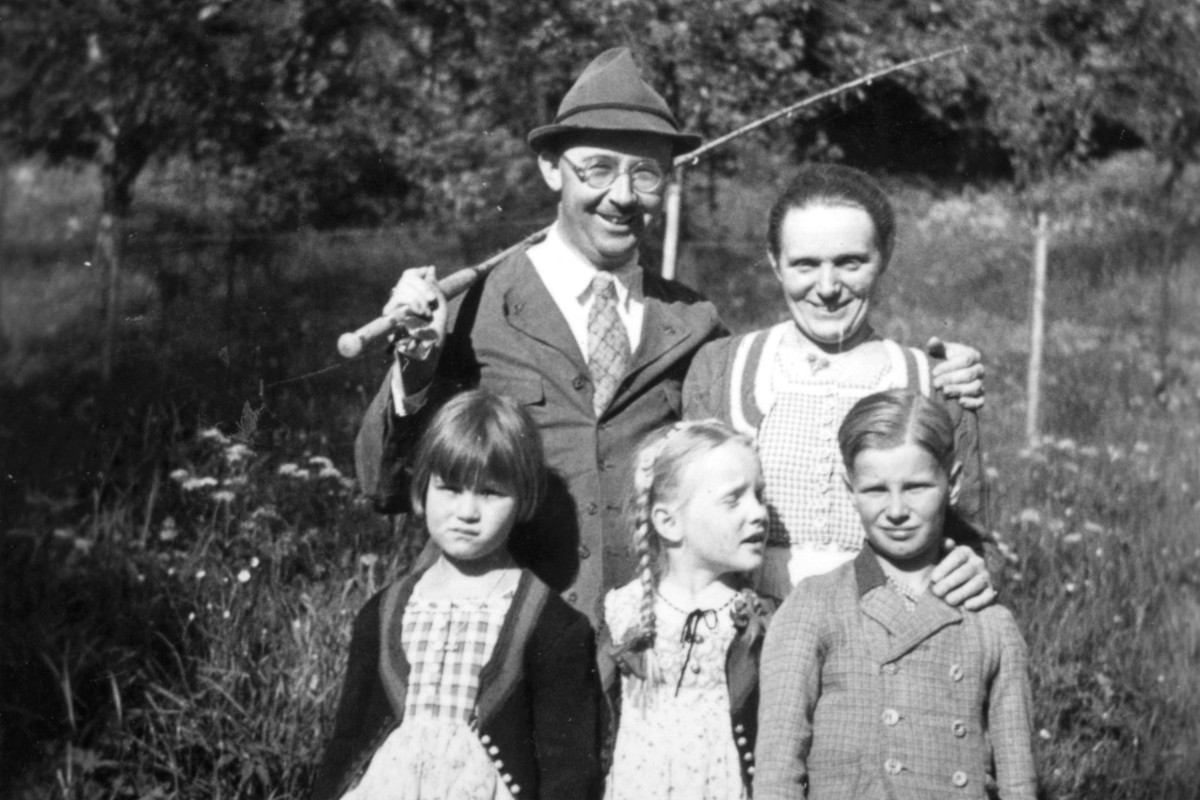Sunday, 6 March 2016
On TV: "The Decent One"
For decades, one of the touchstone documents of life under Nazi occupation has been the diary of Anne Frank. The Decent One offers the starkest of counterpoints: here are the diaries of Heinrich Himmler, presented among the author's other collected correspondence. Vanessa Lapa's documentary serves as an investigation into how one might go about becoming a card-carrying Nazi, as so many of Himmler's generation did, and how one man in particular rose to a position where he was locking so many like Frank away in confined spaces. It is, in many ways, an exercise in back projection, inviting the contemporary viewer to read something of historical or psychological significance into even those banalities the teenage Himmler committed to the page.
It's clear that the First World War, which broke out during this diarist's formative years, had a major effect on the young Heinrich's psyche, and that his older incarnation was unwilling to shake off or otherwise outgrow certain attitudes formed during his youth: that thesis, proposed in Günter Grass's The Tin Drum and elsewhere, that Nazism was a form of arrested development goes unchallenged here. The Russian migrants flooding into Germany after the War "multiply like vermin"; his fellow citizens are dismissed as "so dumb and cowardly". The disapproving conservatism ("The horrible thing about Germany nowadays is that women don't want to be mothers") is all-encompassing: Himmler even uses the sight of a three-year-old child charging around naked before bedtime as an opportunity to rant about the threat the unruly young pose to his homeland's future.
This is not, by any means, a fun mindset to inhabit, but Lapa shapes her source material to make droll juxtapositions: one minute our Heinrich's tutting at homosexuals, the next he's going gaga over the beauty of Nordic man. While being driven to a Nazi rally, Himmler boasts of teaching his driver "our national philosophy": it may be history's first recorded example of the fellow in the back of the cab being more objectionable than the chap at the wheel. (Your heart really does go out to the driver: there is, here as elsewhere, little to counter the notion that most fascists are terrible, pompous bores.) In the love letters Himmler swapped with wife-to-be Marguerite Boden, it's the latter who emerges as the voice of common sense ("Why are you going to a Hitler rally when you know exactly what he'll say?"), although even she eventually felt compelled to sign up to the party line, whining about the Jewish builders working on their marital home.
The readings are supplemented by choice archive footage that points up the spirit of the times: the humiliation of WW1, the decadence of the Weimar years, the slow creep of National Socialist imagery, and the attendant reordering of society, represented both by the thoroughly heteronormative Himmler-Boden alliance and, wider afield, by the massing ranks of young men in uniform. Meanwhile, Lapa's busy rostrum camera scans Himmler's torturous, tangled penmanship, which - with its scratchy peaks and troughs - can't help but remind one of a polygraph. (Graphologists will have themselves a field day.) Of all the war stories the cinema has sought out over recent decades, few have been this revealing on both a political and a personal level; everything we see and hear appears to offer up a clue or two to those of us still mulling over how the Holocaust could happen.
Something plainly changed (or snapped?) in Himmler as Hitler took control and Germany geared up for battle once more: the fumbling tenderness of the Boden letters gives way to a series of snarling memoes and other proclamations - seriously, don't get him started on the gays - which at this remove sound very much like the output of a man getting drunk on the power being slung his way. That's before he starts issuing notes on sterilisation and the construction of the concentration camps, and Lapa spots something painfully revealing in the fact her subject came to forget several birthdays and anniversaries as this extension of the Nazi project took hold: his focus shifted, decisively and deleteriously. The Decent One arrives as both an invaluable attempt to position Himmler as more misguided human being than comic-book villain, and a reminder of the tenets of our own existence. We all make mistakes. Everyone has their reasons. But some are deadlier, and more dangerous, than others.
The Decent One screens on BBC4 tonight at 10.25pm.
Subscribe to:
Post Comments (Atom)

No comments:
Post a Comment